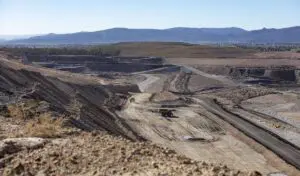Over the last decade, climate and immigration policy have generally proven to be two of the most polarising political topics that have cast riffs between left-wing and right-wing politics.
However, the Austrian parliament has seen them serve as the subject of an unexpected alliance between the country’s conservative and Greens parties.
As part of a new national governing coalition, the Austrian Greens have secured one of Europe’s most ambitious climate change targets, in a deal formed with the conservative Austrian People’s Party, that will also see a clampdown on asylum seekers and the country’s Muslim community in return.
This week, the new Austrian government announced that it had committed to achieving zero net emissions by 2040, along with transitioning to 100 per cent renewable electricity by 2030, a tripling of renewable energy use from current levels.
The deal will see the Austrian government support the addition of one million rooftop solar installations on homes across the country, as well as a major increase in funding for public transport infrastructure. The government will also consider the introduction of a tax on fuel transport.
But the deal may come at a cost for the Austrian Green party; following Austrian national elections held in September last year the Austrian Green party has played the junior role in a coalition with the anti-immigration, anti-Islamic Austrian People’s Party, led by controversial chairperson Sebastian Kurz.
The deal secured Kurz’s position as the Chancellor of Austria, as well as the Greens’ Leonore Gewessler as the minister for the environment and climate protection.
The Greens and the People’s Party spent most of the 2019 election campaign criticising each other’s platforms, particularly over immigration which has emerged as a divisive political topic in many European countries.
Following the election, with the People’s Party holding the largest share of seats but short of an outright majority, the party was forced to negotiate terms with a junior coalition partner. After negotiations with other parties collapsed, a deal was struck with the Greens party, despite a lack of enthusiasm for a deal from party members of both sides.
In securing a deal to form government in Austria, the Greens and the People’s Party agreed on a series of concessions, that saw the Greens secure commitments to ramp up Austrian action on climate change, while also agreeing to stringent new controls on immigration, including a regime of “precautionary detention” of asylum seekers and a ban on Islamic headscarves in schools.
However, the deal succeeded in seeing the Greens replace the ultra-right wing nationalist Freedom Party of Austria as the junior coalition partner in government. The previous coalition with the Freedom Party of Austria ended in scandal after its leader sought to offer lucrative government contracts to a relative of Russian president Vladimir Putin.
The climate change policy, at least, has won support from the European Union Commission.
“It is impressive to see that Austria has set itself the goal of being climate-neutral by 2040,” European Commission President Ursula von der Leyen said.
“I hope that the Austrian model with these ambitious goals will set an example for us.”
Compatriot and former Governor of California Arnold Schwarzenegger said the new climate package could serve as a model for the rest of Europe.
“2020 must be a turning point in climate policy,” Schwarzenegger said. “The next few years will be of decisive importance for the protection of the climate and, therefore, for all of us”.
“In California, for example, we have the strictest environmental laws, but at the same time the most successful economy in the US. Austria can do the same and also be a model.”
The Austrian greens have come under significant criticism for their role in supporting the re-election of the conservative Kurz-led government.










